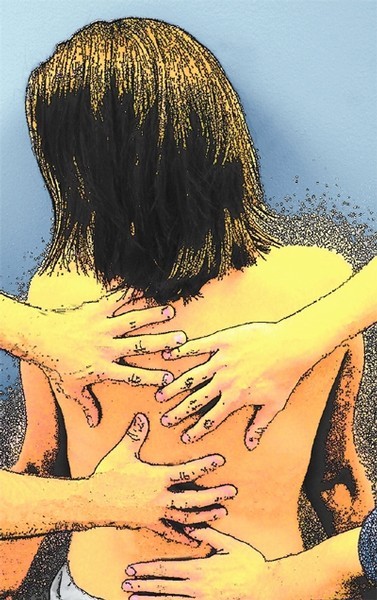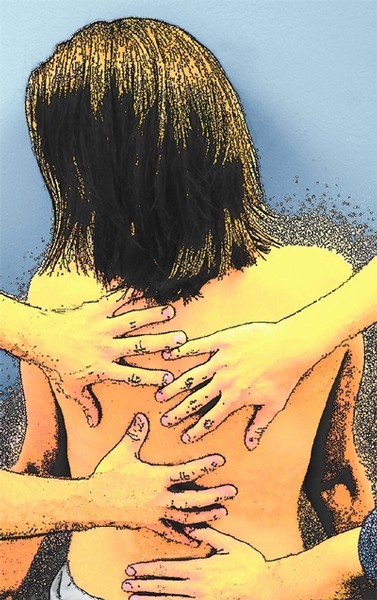
Police fail to report rapes (Brian Fox)
On Sept. 14, 2003, an SMU student told campus police she was sexually assaulted at a fraternity house.
However, the SMU Police Department did not issue a campuswide crime alert notifying students of what happened.
The inaction was not unusual. Over the past three years, SMU police have received reports that at least five female students were sexually assaulted on campus, police records show.
Despite the warnings, police never issued campuswide crime alerts for four of the assaults, even though a federal law requires them to issue notices when crimes “considered by the institution to represent a threat to students and employees” occur.
Several SMU students said the police should notify students whenever a student is attacked.
“The facts need to be made public for the safety of SMU’s female population,” said Davenna Ward, sophomore president of the SMU Resident Hall Association.
“If the SMU Police Department is willing to publish reports about other issues that go on at SMU, they should be held accountable for putting this information out as well.”
Michael Snellgrove, the SMU police chief since 2003, initially said in an interview that his department should always issue a warning whenever a rape is reported.
“We have to put out a timely warning when there’s a sexual assault reported,” he said.
However, Snellgrove gave a different explanation when asked why his department did not issue crime alerts following several sexual assaults in 2003. Snellgrove said that in those cases he did not believe the attackers represented a threat to students.
Snellgrove said that in all but one case, the victim knew the attacker.
“We don’t necessarily have to put them [campuswide crime alerts] out for acquaintance rapes because we recognize who the suspect is,” he said.
Many students and health professionals said this policy makes little sense. They pointed out that in the vast majority of sexual assaults, the victim knows the rapist.
“An acquaintance rape is just as much a crime as anything else,” said Emily Long, a first-year at SMU. “If more people are informed about this type of crime they will be able to protect themselves better.”
The U.S. Department of Justice recently released a study showing that as many as one in every four college women will be sexually victimized during her years in college. In 90 percent of these cases, the victim will know her offender, the study found.
Snellgrove is unmoved by these facts. He said the police department made the right decision not to issue a campuswide crime alert each time a student reported being raped by someone she knew.
The SMU police department, he said, has “never put out a campuswide crime alert for acquaintance rape, but we wouldn’t hesitate if the suspect was a stranger.”
That is not what happened in Nov. 2003. On Saturday, Nov. 23, a student reported she was sexually assaulted in the Airline Parking Garage. It was not until four days later — after The Daily Campus published a story about the reported rape — that SMU police finally issued a campuswide crime alert.
SMU students were quick to criticize the police department’s delay in issuing a warning. University administration agreed with the students.
After the most recent sexual assault, Dr. Jim Caswell, dean of Student Affairs, said in the future, police should issue an electronic alert sent out within 24 hours after a student reports a sexual assault.
“It does make sense to alert the campus in this manner,” Caswell said in April. “In retrospect, I think it [the campus alert] took too long.”
Snellgrove said students and faculty want crime information immediately.
“The community, regardless of how little information we may have about the case, still wants to know that the crime occurred as soon as possible,” he said recently.
Nevertheless, Snellgrove said the police department will continue to follow his policy of not issuing a crime alert when an acquaintance rape is reported.
Campus security experts said this is not the best way to protect students.
“The police don’t have to name names. An alert that simply includes the time and location of the crime can raise awareness about the problem,” says Katherine Bath, executive director of Security on Campus, a non-profit organization dedicated to improving safety on college campuses.
“[Alerts] make students safe by giving them the tools to take precautions. If more students knew that these crimes occurred, they could avoid being victimized.”
Bath said SMU’s policy is inconsistent with the spirit of the Clery Act, a federal law that requires schools to report violent crimes to the government and the students.
Several SMU students said the police department’s policy of not issuing crime alerts when an acquaintance rape takes place sends the wrong message.
“Treating acquaintance rape with less gravity is careless,” said Lauren Goodson, a sophomore. “Not only would I personally want to know about this crime, but the SMU Police Department should have no hesitation to release a campuswide alert.”
Assaults reported by SMU PD
Between 2001 and 2003, four female students at SMU told police they were sexually assaulted on campus. Yet police never issued campuswide crime alerts despite a federal law requiring them to do so. Daily activity logs maintained by police show:
• Aug. 22, 2001: Medical City Hospital contacted SMU PD and advised that a female student arrived at the ER and reported she was sexually assaulted on campus.
• June 30, 2002: A student reported she was sexually assaulted. The incident apparently occurred in early February in Morrison Hall.
• April 11, 2003: A student reported she was the victim of sexual assault. The offense occurred inside Moore Hall early in the morning. The victim knew the suspect who was a former student.
• Sept. 14, 2003: A student reported she was sexually assaulted at the Sigma Chi house on the previous day. The victim declined to file criminal charges at the time of the report.










